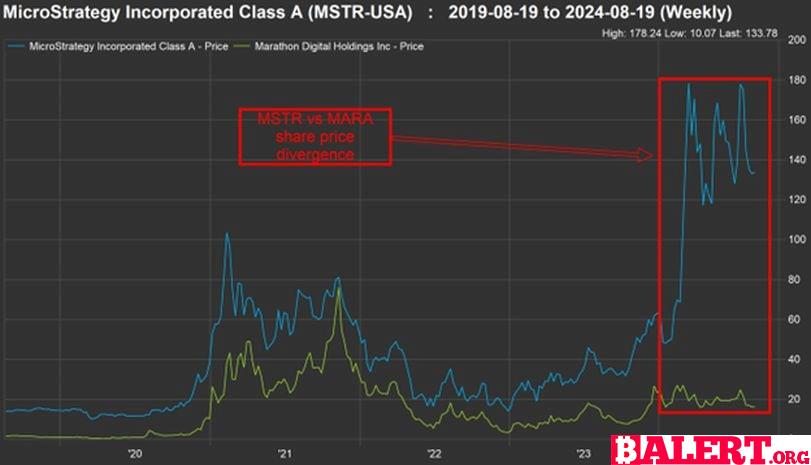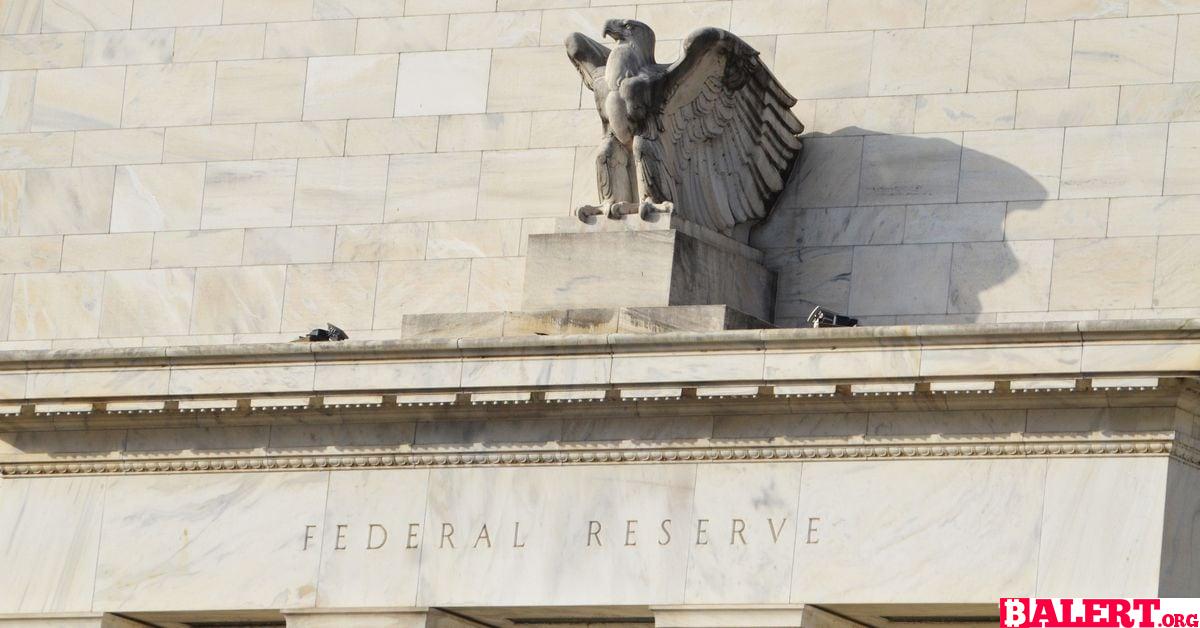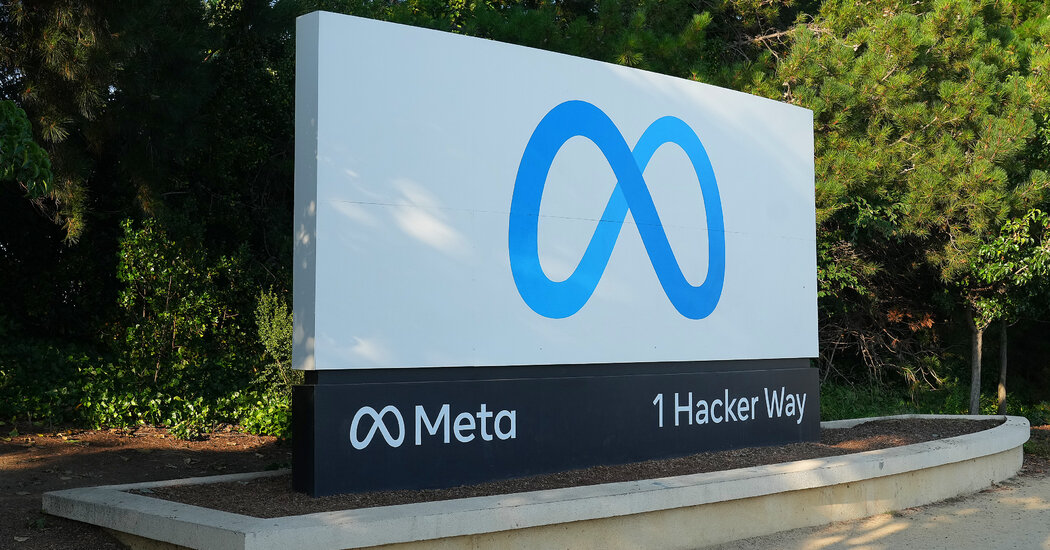Business
The Shift to Bitcoin Accumulation Strategies in Mining: Marathon Digital’s New Approach
Explore Marathon Digital’s innovative shift towards Bitcoin accumulation strategies in mining. Discover how this new approach is reshaping the industry and enhancing profitability in a competitive landscape.

The Rise of Bitcoin Accumulation Strategies in the Mining Sector
Billionaire Michael Saylor is renowned for his trailblazing approach to large-scale corporate bitcoin (BTC) acquisitions. Through strategic borrowing, he transformed his publicly traded software firm, MicroStrategy (MSTR), into one of the largest holders of bitcoin globally. Now, another unexpected player is mirroring this strategy: a bitcoin mining company that has opted to sell debt to finance its bitcoin purchases instead of investing in mining equipment. This decision underscores the significant challenges faced by the mining industry in recent times.
The company in question is Marathon Digital (MARA), which recently raised $300 million through the sale of convertible notes—bonds that can be converted into equity—and utilized the majority of these proceeds to acquire 4,144 bitcoin. Instead of expanding its mining operations, Marathon determined that “given the current mining hash price, the internal rate of return (IRR) indicates that purchasing bitcoin using funds from debt or equity issuances is more beneficial to shareholders until conditions improve,” as stated by the largest publicly traded miner on X. The term “hash price” refers to a metric that gauges mining profitability.
MicroStrategy’s method of accumulating bitcoin faced considerable criticism following the market crash in 2022, which left the company’s investments in the red. However, as time has passed, MicroStrategy’s bitcoin portfolio has significantly appreciated, now worth billions beyond its original investment. The paths of MicroStrategy and Marathon in the stock market were quite similar after Saylor began his bitcoin purchases in 2020, with both companies acting as proxies for bitcoin’s price—an appealing factor before the approval of bitcoin ETFs early this year.
Yet, in 2023, a stark divergence has emerged. MicroStrategy’s stock has surged approximately 90%, closely tracking bitcoin’s price. In contrast, Marathon’s stock has declined nearly 40% as the mining sector has become increasingly challenging. The upcoming Bitcoin halving in April reduced the mining reward by half, significantly impacting miners’ primary income source.
In response to these challenges, Marathon adopted a “full HODL” strategy, committing to retain all mined bitcoin while also raising capital to purchase additional coins. “Adopting a full HODL strategy reflects our confidence in the long-term value of bitcoin,” stated Fred Thiel, Marathon’s chairman and CEO, in a recent announcement. He emphasized, “We believe bitcoin is the world’s best treasury reserve asset and support the idea of sovereign wealth funds holding it. We encourage governments and corporations to all hold bitcoin as a reserve asset.”
The Profit Squeeze in Mining
The share price disparity between MicroStrategy and Marathon is not surprising, given the ongoing struggles within the mining industry. The sector is now overcrowded, increasingly competitive, and grappling with rising operational costs. Compounding these issues, the Bitcoin network’s hashrate and difficulty—two critical indicators of how challenging it is to mine new bitcoin—are on the rise. JPMorgan recently reported that mining profitability has plummeted to all-time lows as the network hashrate surged in early August, while hash price remains around 30% lower than in December 2022 and approximately 40% below pre-halving levels.
Miners are feeling the pressure to pivot away from traditional mining strategies, which were once highly lucrative, and explore diversification into other ventures, such as artificial intelligence, to remain viable. Some companies, like Swan Bitcoin, have even canceled initial public offerings and scaled back mining operations due to insufficient revenue in the near term. “At current hash price levels, a meaningful proportion of the network is still profitable, but only marginally,” noted Galaxy Research in a report dated July 31. “While some miners may continue operations because they can generate positive gross profits, many find themselves unprofitable when considering operating expenses and additional cash costs.”
The introduction of bitcoin exchange-traded funds (ETFs) in the U.S. earlier this year has provided institutional investors with a more straightforward method to gain crypto exposure without directly buying cryptocurrencies. Following the rollout of these ETFs, many institutional investors have opted to short-sell mining stocks and invest in ETFs instead, effectively capping the appreciation potential of miner stock prices.
To remain competitive and navigate the current challenges, miners have limited options aside from diversifying their business models. Even well-capitalized miners like Marathon face the dilemma of whether to continue investing heavily in mining or pursue acquisitions of competitors. Both paths are time-consuming and carry inherent risks. In light of these circumstances, Marathon’s choice to adopt a strategy similar to MicroStrategy’s and purchase bitcoin directly in the open market makes sense. “During periods of significant price appreciation, we may focus solely on mining. However, with bitcoin trending sideways and costs increasing, we expect to opportunistically ‘buy the dips,'” Marathon announced.
The Return of Debt Financing in Mining

Marathon’s bitcoin purchases are not unprecedented; the miner previously acquired $150 million worth of bitcoin back in 2021. However, the recent decision to utilize convertible senior notes—debt that can be converted into company shares—to raise funds for additional bitcoin purchases represents a new development, mirroring MicroStrategy’s successful approach. According to Bernstein, Saylor’s company has raised a staggering $4 billion to acquire bitcoin, allowing it to capitalize on potential price increases while minimizing the risk of being forced to liquidate its digital assets.
Convertible debt typically incurs lower costs for companies and avoids the immediate dilution of shareholder equity associated with stock offerings. “With bitcoin prices at an inflection point and anticipated market tailwinds, we see this as an opportune moment to increase our holdings, employing convertible senior notes as a lower-cost capital source that is not immediately dilutive,” Marathon stated. The miner issued its notes at a 2.125% interest rate, which is lower than the current 10-year U.S. Treasury rate of 3.84% and comparable to MicroStrategy’s latest offering at 2.25%. The ability to secure such a low rate while still attracting investors is attributed to the appeal of a steady income from the debt, combined with the potential for equity conversion.
The opportunity to raise funds at a favorable interest rate also positions Marathon well for future acquisitions. “The bitcoin mining industry is in the early stages of consolidation, and the natural acquirers are the companies with large balance sheets,” noted Ethan Vera, COO of Luxor Tech. “Building a bitcoin position enhances a company’s ability to raise capital with a clear purpose while preparing its balance sheet for potential mergers and acquisitions.” In fact, the return of debt financing could signal a broader trend for the mining industry, which saw this option diminish during the crypto winter when numerous miners defaulted on poorly structured loans. Recent data shows other miners, including Core Scientific (CORZ) and CleanSpark (CLSK), also tapping into debt markets.
Galaxy Research concluded, “We believe the industry is now in a much stronger position to take on debt without relying solely on equity issuance for growth.”
Business
Bhutan’s Strategic Investment in Bitcoin: A New Era for the Himalayan Kingdom
Explore how Bhutan is embracing Bitcoin as a strategic investment, marking a transformative shift for the Himalayan kingdom. Discover the implications of this move on its economy, sustainability, and future in the digital age.

Buddhist Kingdom’s Bold Move into Bitcoin
A stunning landlocked nation nestled between India and China, Bhutan has made headlines by accumulating significant bitcoin (BTC) holdings totaling over $780 million in recent years. This amount represents nearly one-third of the country’s gross domestic product (GDP), positioning Bhutan as the holder of the fourth-largest state-owned stash of BTC, as revealed by the on-chain analytics tool Arkham.
Known for its unique approach to governance, Bhutan emphasizes the happiness of its fewer than 900,000 citizens as a more meaningful metric of well-being than traditional economic indicators. This Himalayan kingdom has become the second nation, following El Salvador, to officially embrace BTC as part of its national strategy, incorporating it into the state-owned Druk Holdings fund.
According to Arkham, Bhutan has established bitcoin mining facilities across various locations, with the most significant operation situated on the site of the now-defunct Education City project. Unlike many governments that acquire BTC through asset seizures related to law enforcement, Bhutan’s holdings have originated from extensive bitcoin mining activities, which have seen a remarkable increase since early 2023.
These mining operations are likely connected to Bitdeer (BTDR), a prominent player in the cryptocurrency mining sector. In 2023, the Singapore-based firm announced its collaboration with the Bhutanese government to develop cryptocurrency mining operations in Southeast Asia, successfully raising over $500 million for this ambitious venture. Following this announcement, Bitdeer disclosed that it had completed the first phase of a 100 megawatt (MW) mining facility.
Looking ahead, Bitdeer announced plans to expand Bhutan’s mining capacity to a staggering 600 MW by 2025, reflecting the growing significance of this initiative.
Despite its small geographic size, even smaller than Switzerland, Bhutan faces challenges such as limited economic diversification and an underdeveloped private sector. The nation primarily relies on sectors like hydropower, tourism, and agriculture to generate revenue. In 2022, Bhutan’s GDP was recorded at just under $3 billion, approximately half that of the Maldives.
To bolster its economy, Druk Holdings is exploring opportunities across various sectors. The organization’s website highlights “digital assets” as a key focus area in its technology-driven investment strategy, which also includes projects in hydropower and emerging digital realms like the metaverse.
Recent activities in the Druk wallets, as monitored by Arkham, indicate a flurry of deposit and withdrawal transactions in recent weeks. The fund has received multiple deposits of up to 2 BTC from Foundry, another mining entity, as well as from other unidentified bitcoin addresses during the past week. Additionally, Druk Holdings has periodically transferred bitcoin to various addresses, including crypto exchanges. One notable transaction from early July involved a transfer of over $25 million worth of BTC sent to the crypto exchange Kraken, suggesting that it was likely sold to capitalize on market conditions.
Business
Bitcoin and Crypto Markets React to Anticipated Federal Rate Cuts
Explore how Bitcoin and cryptocurrency markets are responding to the anticipated Federal rate cuts. Discover the implications for investors and the broader financial landscape in this insightful analysis.

Bitcoin and Crypto Markets Await Federal Rate Cuts
Bitcoin (BTC) and the broader cryptocurrency markets have seen minimal fluctuations over the past 24 hours as traders remain cautious ahead of the upcoming Federal Open Market Committee (FOMC) meeting on Wednesday. This meeting is particularly significant, as officials are anticipated to announce the first interest rate cuts in four years. Currently, Bitcoin is trading just below $58,500, specifically at $58,480, reflecting a relatively stable performance. The CoinDesk 20 (CD20), a benchmark for the largest digital assets, has experienced a slight increase, trading above the 1,800 mark.
In terms of daily activity, inflows into Bitcoin exchange-traded funds (ETFs) have amounted to $12.9 million, with a substantial portion directed towards BlackRock’s IBIT. Analysts widely expect the Fed to unveil a rate cut on September 18, signaling the beginning of a potential easing cycle that has historically provided support for risk assets, including Bitcoin.
As of Tuesday morning in Asia, the 30-Day Fed Funds futures prices indicate that traders perceive a 67% likelihood of a significant 50 basis points rate cut, bringing the target range to 4.7%-5%. This is an increase from Monday’s implied probability of 50% and a notable rise from the 25% probability reported a month ago. On Polymarket, traders are assigning a 57% chance of a decrease exceeding 50 basis points, alongside a 41% chance of a 25 basis points cut.
Meanwhile, the overall market remains relatively stable. Noteworthy movements have been observed, such as XRP rising by 3.5%, SUI increasing by 2.5%, and Fantom’s FTM surging by 10.5%, buoyed by positive market sentiment surrounding its forthcoming rebranding to Sonic.
Trump’s World Liberty Financial to Introduce WLFI Token
In other news, the team behind World Liberty Financial, a project receiving endorsement from former President Donald Trump and his family, has announced the launch of a governance token. However, it is crucial to note that this token will only be available to accredited U.S. investors. During a livestream that lasted over two hours, the team highlighted that the token is intended for governance participation rather than for economic profit and did not disclose a specific launch date during the X Spaces stream.
Throughout the livestream, Trump himself did not specifically mention the token or provide an endorsement. Instead, he reiterated his general views on cryptocurrency policy, much of which echoed his previous public statements, including those made at the recent Bitcoin Conference held in Nashville.
Figure Markets Launches Exchange with Real Estate-Backed Yields
In a groundbreaking development within the crypto space, Figure Markets has announced the launch of its exchange, coinciding with the Token2049 event in Singapore. Founded by Mike Cagney, a co-founder of SoFi, Figure Markets introduces an innovative method for generating yields for users who store their cryptocurrency on the platform.
According to a recent release, Figure Markets claims it can offer returns of up to 8% for non-USD and stablecoin balances. This is achieved by leveraging a fund backed by real-world assets, particularly home equity loans. The operational model involves traders depositing their funds into Figure Markets, which are then pooled and lent to Figure Technologies for the issuance of secured home equity loans. The interest paid by borrowers on these loans creates a spread that not only covers operational costs but also provides returns to investors. These investors benefit from dual recourse protections, daily liquidity, and interest payments that accrue based on the duration of their investments.
While Real World Assets (RWAs) are progressively becoming a noteworthy aspect of the cryptocurrency industry, there are still very few applications that seek to derive yield from these assets to support their operations. Prior to the launch of Figure in 2023, Cagney had withdrawn the company’s bid for a U.S. federal bank charter amid regulatory scrutiny, opting instead to pursue partnerships with established banks.
Business
Meta Bans Russian Media Outlets Amid Disinformation Concerns
In response to rising disinformation concerns, Meta has imposed bans on several Russian media outlets. This decision highlights the ongoing battle against misinformation and the platform’s commitment to ensuring accurate information for its users.

Meta Takes Strong Action Against Russian Media Outlets
On Monday, Meta announced a significant initiative to prohibit Russian media outlets, including the state-funded television network RT, from utilizing its platforms. This decision comes in light of ongoing scrutiny in the United States regarding these outlets’ involvement in covert influence campaigns designed to manipulate online discourse across various social media platforms.
Meta, the parent company of popular applications such as Facebook, Instagram, and WhatsApp, stated that the ban would be implemented in the coming days. This decisive action marks an escalation in the ongoing efforts to combat Russian state media actors, which U.S. intelligence officials have identified as key players in disinformation operations that span the globe, infiltrating the world’s largest social networking sites.
In a formal statement, Meta expressed, “After thorough consideration, we have expanded our current enforcement measures against Russian state media outlets. Rossiya Segodnya, RT, and other related entities are now prohibited from our applications worldwide due to their involvement in foreign interference activities.”
Recently, U.S. authorities have tightened their grip on RT, particularly for its attempts to meddle in the upcoming presidential election scheduled for November. On Friday, the United States, in conjunction with Canada and Britain, accused RT of functioning as a conduit for Russian intelligence agencies. They announced new sanctions aimed at curtailing international funding sources that support disinformation campaigns globally.
This crackdown follows the federal indictment of two RT employees, who allegedly funneled at least $9.7 million to finance American podcasters on Tenet Media, a video-streaming service based in Tennessee. The goal was to amplify the Kremlin’s propaganda and undermine the integrity of the American democratic process.
Secretary of State Antony J. Blinken emphasized the broader implications of these tactics, stating, “We’re revealing how Russia employs similar strategies globally.” He further noted, “The Russian weaponization of disinformation to destabilize and polarize free and open societies is a challenge that impacts every corner of the world.”
-

 Business7 months ago
Business7 months agoThe Significance of Jackson Hole: A Central Banking Tradition
-

 Tech6 months ago
Tech6 months agoNew Leaks and Features About the Samsung Galaxy S25 Ultra
-

 Article9 months ago
Article9 months agoCreative Design Applications Developed with Artificial Intelligence
-

 Business6 months ago
Business6 months agoBhutan’s Strategic Investment in Bitcoin: A New Era for the Himalayan Kingdom
-

 Business9 months ago
Business9 months agoObituary: Dan Collins
-

 World6 months ago
World6 months agoThierry Breton Resigns: Impact on European Union Leadership
-

 Gaming6 months ago
Gaming6 months agoNew Details and Trailer Released for Dead Rising Deluxe Remaster
-

 Gaming6 months ago
Gaming6 months agoNew Details for Alan Wake 2 and PlayStation 5 Pro Announcement









